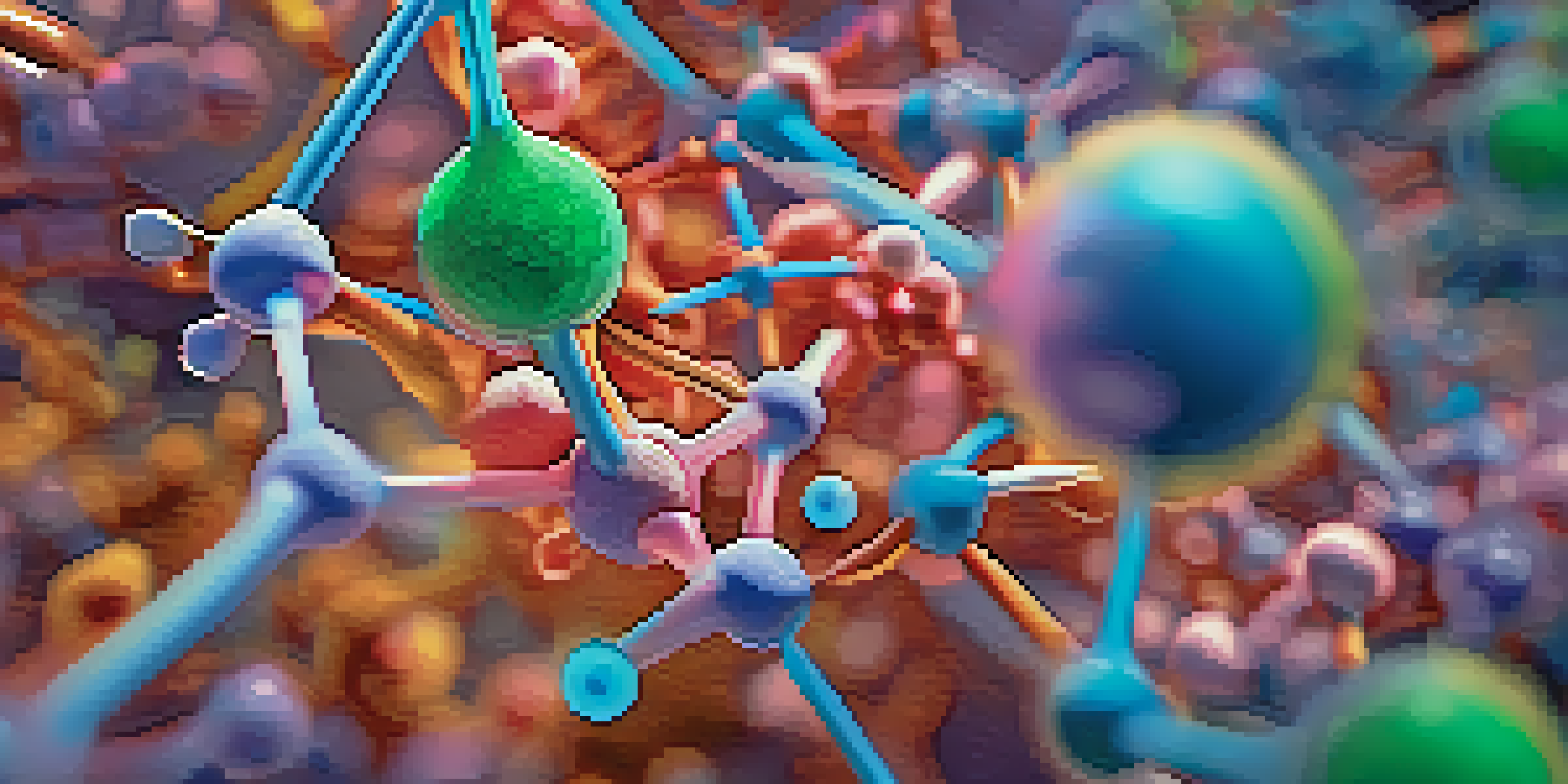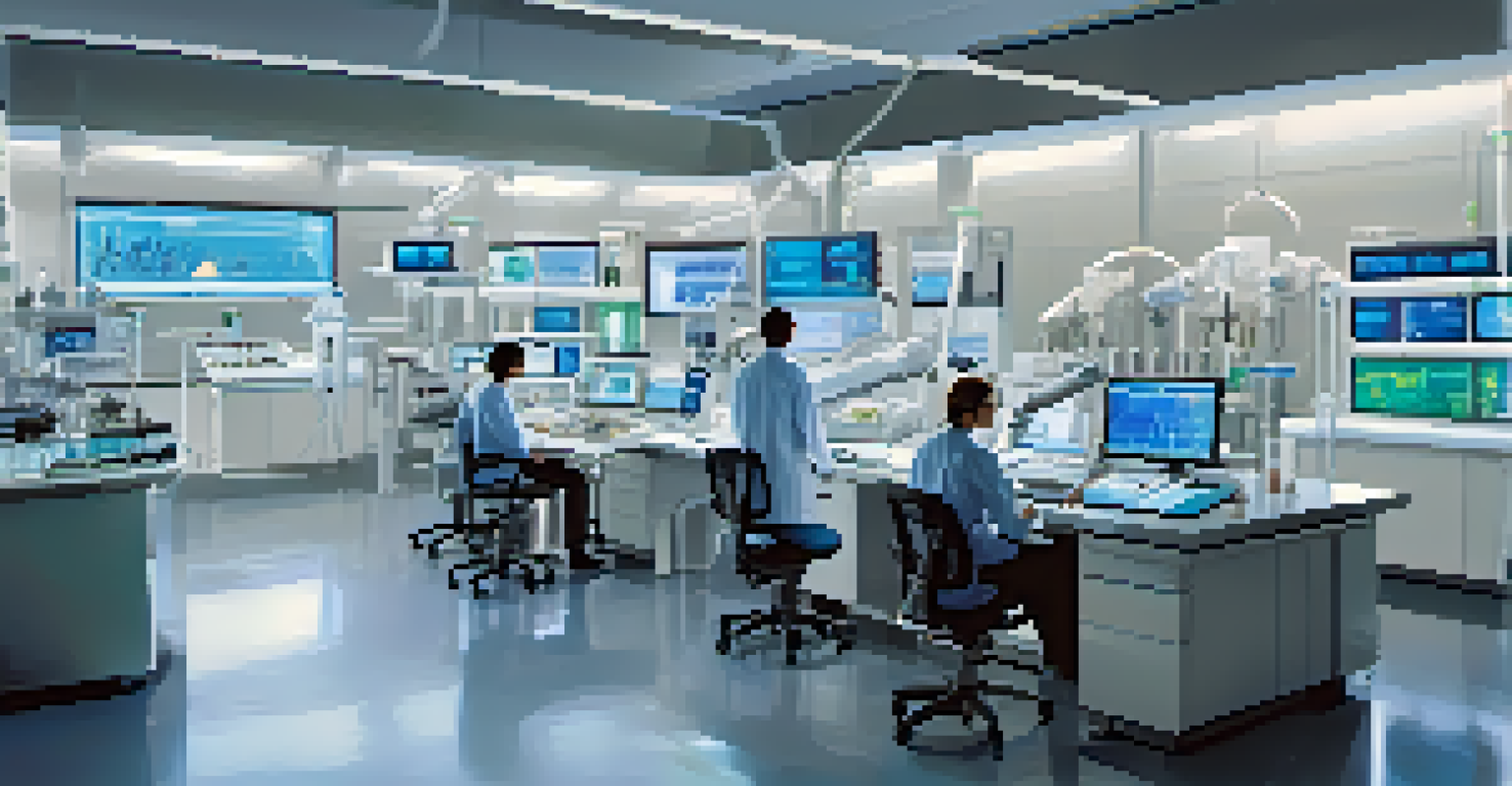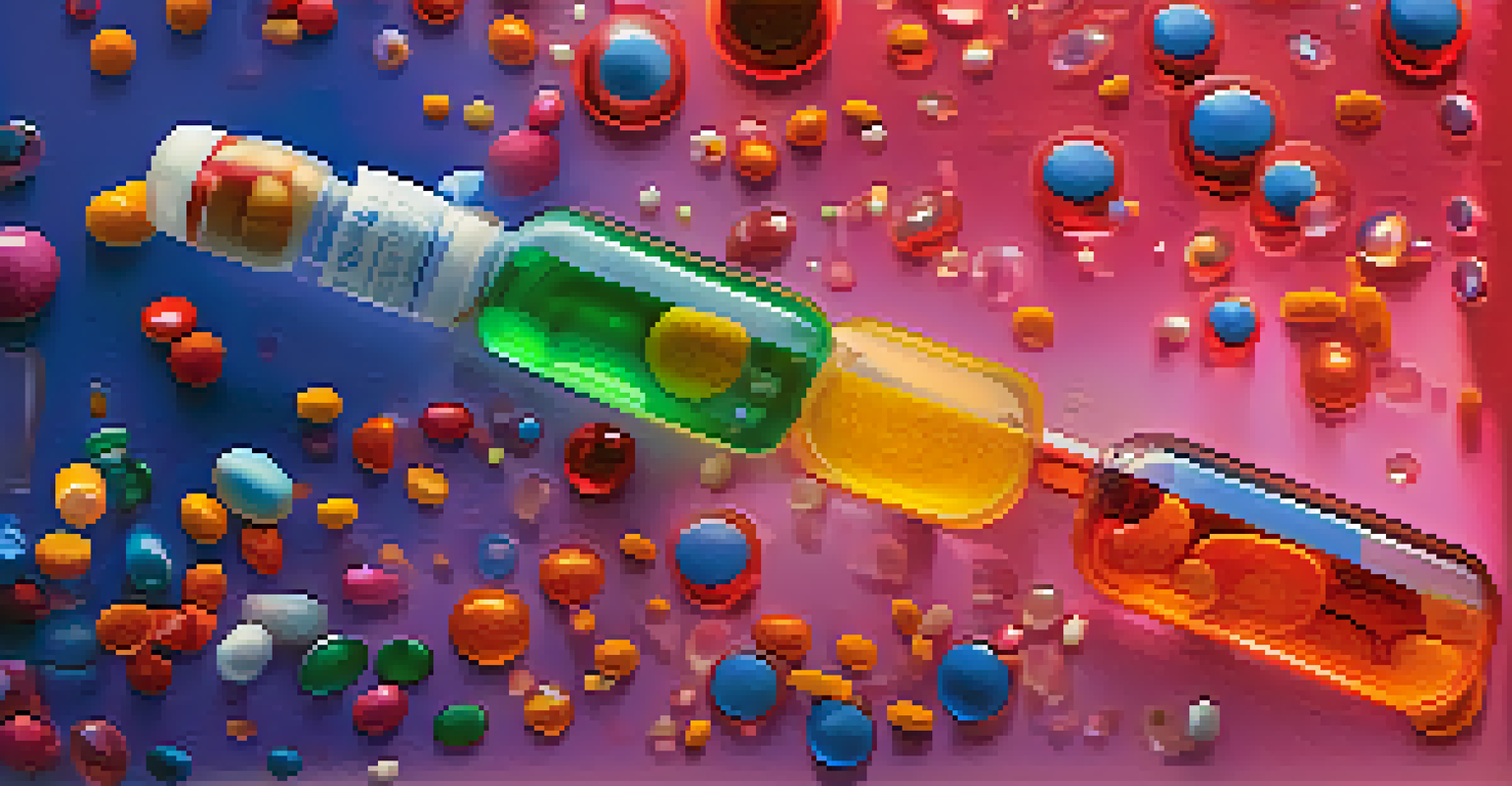Innovations in Drug Delivery: Molecular Medicine Advances

Understanding Molecular Medicine's Role in Drug Delivery
Molecular medicine is a field that focuses on understanding diseases at a molecular level, which is crucial for innovative drug delivery. By targeting the specific mechanisms of diseases, researchers can develop therapies that deliver drugs more efficiently and effectively. This approach not only enhances the therapeutic outcomes but also minimizes side effects, making treatments safer for patients.
The greatest danger in times of turbulence is not the turbulence; it is to act with yesterday's logic.
For instance, traditional drug delivery methods often involve a one-size-fits-all approach. In contrast, molecular medicine paves the way for personalized therapies that consider individual genetic profiles, leading to tailored treatments. This shift is significant as it allows healthcare professionals to select the right drug and dosage for each patient, resulting in better health outcomes.
As we delve deeper into molecular medicine, we can expect to see more innovations that will change how we approach drug delivery. The blend of technology and biology holds immense potential, promising to redefine treatment protocols and improve patient care across various diseases.
Nanotechnology: A Game Changer in Drug Delivery
Nanotechnology has emerged as a revolutionary force in drug delivery, enabling the development of nanoparticles that can carry drugs directly to targeted cells. These tiny carriers can navigate through the body and release their payloads precisely where needed, resulting in enhanced efficacy. For example, in cancer treatment, nanoparticles can be designed to specifically target tumor cells, sparing healthy tissues from damage.

This precision in drug delivery not only enhances the effectiveness of treatments but also significantly reduces side effects. Patients receiving targeted therapy often experience fewer adverse effects compared to traditional chemotherapy. This is because the drugs are concentrated at the site of action, minimizing exposure to other parts of the body.
Molecular Medicine Enhances Drug Delivery
This field focuses on understanding diseases at a molecular level to create personalized therapies that improve treatment efficiency and reduce side effects.
In addition to cancer, nanotechnology is being explored for various other applications, including vaccine delivery and treatment of chronic diseases. As researchers continue to innovate in this space, we can expect to see even more sophisticated delivery systems that harness the power of nanotechnology.
Smart Drug Delivery Systems: The Future is Here
Smart drug delivery systems represent a leap forward, incorporating technology that allows for on-demand release of medications. These systems respond to specific physiological conditions, such as pH or temperature, making drug delivery more efficient. Imagine a scenario where a medication is released only when it reaches a specific area in the body, thereby maximizing its effectiveness.
Innovation distinguishes between a leader and a follower.
One exciting example of smart drug delivery is the use of hydrogels that can swell or shrink in response to environmental changes. By manipulating these properties, researchers can create systems that release drugs at controlled rates, ensuring that patients receive the right dose at the right time. This technology holds promise for chronic conditions requiring long-term treatment.
The integration of smart technology into drug delivery not only improves patient adherence but also enhances overall treatment outcomes. As these systems become more sophisticated, we may soon see a revolution in how we manage various health conditions, from diabetes to heart disease.
Gene Therapy: Redefining Drug Delivery Mechanisms
Gene therapy is a groundbreaking approach that involves altering the genes inside a patient's cells to treat or prevent disease. This innovative method relies heavily on efficient drug delivery systems to ensure therapeutic genes reach their target cells. Unlike traditional drugs, gene therapies require precise delivery to achieve their intended effects, making advancements in this area crucial.
For instance, viral vectors are often used as delivery vehicles in gene therapy. These modified viruses can effectively transport therapeutic genes into human cells, facilitating the production of proteins that may be missing or dysfunctional. This technique has shown promise in treating genetic disorders, such as cystic fibrosis and hemophilia.
Nanotechnology Targets Disease Precisely
Nanoparticles can deliver drugs directly to specific cells, significantly improving treatment efficacy and minimizing harm to healthy tissues.
As research continues to advance, the integration of gene therapy with novel drug delivery systems could unlock new possibilities for treating previously incurable conditions. This synergy highlights the importance of innovation in both molecular medicine and drug delivery technologies.
Targeted Therapies: Enhancing Precision in Drug Delivery
Targeted therapies have transformed the landscape of medicine by allowing drugs to focus on specific disease markers. This precision minimizes collateral damage to healthy cells, a common issue with conventional treatments. The result? Improved patient outcomes and fewer side effects, which is a win-win for both patients and healthcare providers.
For example, monoclonal antibodies are a class of targeted therapies that can bind to specific proteins on cancer cells, delivering treatment directly to the site of action. This approach has been particularly effective in treating certain types of cancers, as it leverages the unique characteristics of the tumor to enhance drug efficacy.
The ongoing research and development of targeted therapies underscore the importance of understanding the molecular underpinnings of diseases. As scientists continue to unravel the complexities of various conditions, we can expect even more refined drug delivery methods that align with personalized medicine.
The Role of Artificial Intelligence in Drug Delivery Innovations
Artificial intelligence (AI) is playing an increasingly significant role in drug delivery innovations, helping researchers analyze vast amounts of data to identify optimal delivery methods. By leveraging machine learning algorithms, scientists can predict how drugs will behave in the body and determine the best delivery systems for various therapies. This technology accelerates the drug development process, making it more efficient and targeted.
AI can also help in designing smart drug delivery systems by analyzing patient data to personalize treatments. For example, AI algorithms can evaluate a patient’s genetic makeup and lifestyle factors to suggest tailored drug delivery strategies. This level of personalization ensures that patients receive the most effective treatment, improving overall outcomes.
AI Revolutionizes Drug Delivery Systems
Artificial intelligence is transforming drug delivery by analyzing data to personalize treatments and streamline the development of innovative therapies.
As AI continues to evolve, its integration with drug delivery systems will likely lead to more breakthroughs in the field. The synergy between technology and medicine promises to enhance patient care and redefine how we approach treatment in the coming years.
Regulatory Challenges in Advancing Drug Delivery Technologies
Despite the exciting advancements in drug delivery technologies, regulatory challenges remain a significant hurdle. Regulatory bodies must ensure that new methods are safe and effective before they can be approved for use. This rigorous process, while essential for patient safety, can slow down the introduction of innovative therapies into the market.
For instance, the complexity of new delivery systems, such as nanoparticles and smart devices, often requires extensive testing and validation. This can lead to delays in bringing these life-saving innovations to patients who need them most. However, it’s crucial for regulators to strike a balance between ensuring safety and fostering innovation.

As discussions around regulatory frameworks evolve, there is hope for more streamlined processes that can accommodate the rapid pace of innovation in drug delivery. Collaborations between researchers, industry leaders, and regulatory authorities will be key in navigating these challenges and ultimately improving patient access to advanced therapies.